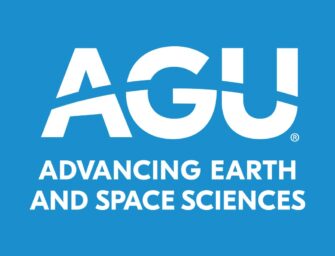2017 in Review: A Look at the State of Science Policy and What’s to Come
As 2017 began with a new administration in Washington, D.C., there was evidence that we could expect to face serious challenges to science policy and the scientific enterprise; some have come to pass, and others have not. Throughout this tumultuous year, AGU has played a significant role both in addressing these far-reaching issues and supporting the scientists and allies wanting to use their voices to speak up for science. From the March for Science, where our global community rallied around scientific freedom and integrity, to AGU’s Congressional Visits Days where we hosted AGU members to come to Washington, to The Sharing Science Mentoring Program which paired 30 graduate students with experts in scientific outreach and policy, to the ten communities that took part in the Thriving Earth Exchange’s climate change Resilience Dialogues project, our community has engaged with society at heightened levels.
Where Does Science Stand?
While there are a number of serious issues of concern to the AGU community now and on the horizon, I want to recognize some of the successes that we have achieved this year. First, we’re seeing the appointment of Earth and space scientists to important federal scientific positions including Thomas Zurbuchen, associate administrator for the Science Mission Directorate at NASA; William Easterling, head of the Directorate for Geosciences at the NSF; RADM Tim Gallaudet (USN Ret.), Assistant Secretary of Commerce for Oceans and Atmosphere and Acting NOAA Administrator; and William H. Werkheiser, acting director of the U.S. Geological Survey.
Second, 2017 also saw science society’s working together in unprecedented ways to combine their expertise, resources, and public voices to telegraph key messages and advance calls to action. Over the course of 2017, AGU signed onto 23 joint statements with allied organizations – including the Geological Society of America, American Association for the Advancement of Science, American Astronomical Society, Association of American Universities, and many others – on critical issues ranging from a response to the administration’s executive order on immigration, to the need for the appointment of a qualified science advisor, to a call upon Congress to support robust funding for scientific research.
Third, the final U.S. tax bill that passed the Senate and House of Representatives, while still highly controversial, does not tax graduate school tuition waivers as income and also maintains the student loan interest tax deduction. The removal of this language is thanks in large part to the efforts of the academic community and AGU members who spoke out in force about the far-reaching effects this move would have upon recruiting the brightest minds to pursue higher education.
None of that is to minimize the challenges still before us. We have seen an increasing number of troubling moves by the Administration to hinder scientific integrity, silence or even discredit federal scientists, and stifle the open communication of science both within the U.S. and internationally. This type of interference into the science and research can have a chilling effect upon the global scientific enterprise. AGU has spoken out strongly against many of these directives including the Administration’s travel ban on individuals from certain nations and EPA Administrator Scott Pruitt’s policy to disallow grantees from serving on the EPA scientific advisory boards, among many others. A number of members of Congress have used AGU’s statements in their own remarks. For example, Congressman Paul Tonko (D-NY) referenced AGU’s letter in an EPA oversight hearing held by the House Committee on Energy and Commerce.
Another significant challenge remains the state of funding at U.S. federal science agencies, affecting the agencies’ abilities to perform research and provide grants critical for everything from natural disaster projections to understanding the availability of fresh water. While the fiscal year 2018 spending bills are not yet finalized, prospects are that funding levels will be flat at best, with some programs slated for cuts – and indications are that the President’s proposed budget for fiscal year 2019 may slash science budgets to drastically low levels. AGU and our members continue to let policy makers know about the value of Earth and space science for our health and safety, the economy, and global security –it’s remains critically important to add your voice.
What’s Ahead
In 2018, AGU is committed to playing an even more visible role on issues related to scientific integrity and censorship, science funding, and to support our members’ efforts to more actively engage on these issues. Working both unilaterally and in concert with other scientific societies, we’ve seen the positive impact that our efforts can sometimes have on science policy.
We will continue to speak up about the value of Earth and space science and the fundamental importance of the ability to generate and disseminate scientific knowledge openly, and to push back on any actions, statements, or funding cuts that harm the time-proven scientific process. Even more importantly, we will be expanding our efforts to provide scientists the resources and opportunities to engage on their own – look for more information on those new efforts early in the new year!
One thing to keep in mind is that 2018 is an election year in the United States, and policymakers will be especially attuned to what they’re hearing from their constituents. While it is important that we represent you in the halls of Congress and the offices of the administrative agencies, even more critical is your voice. You can engage as a private citizen with candidates for congressional offices and other local races in a non-partisan way by talking with them about the value of Earth and space science in your communities and worldwide. Throughout the year, we encourage you to visit actioncenter.agu.org and to write to your policymakers. Together, we will sustain the best outcomes for science and for citizens around the world.




There are no comments
Add yours